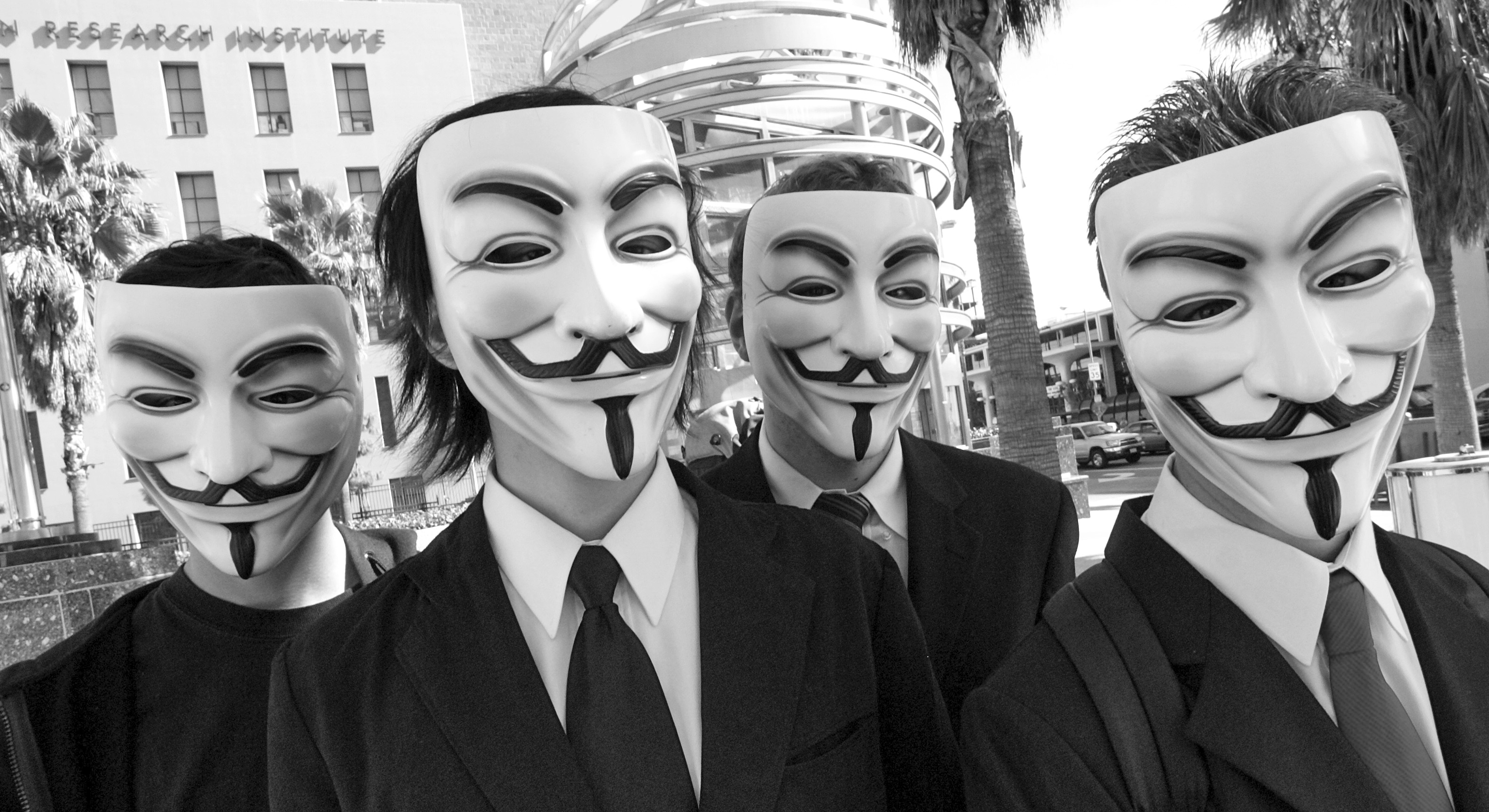Brian Knappenberger, the writer and director of We Are Legion: The Story of the Hacktivists, claims to have compiled a documentary which explores the roots of hacktivism. What Knappenberger has created, in fact, is a fawning, if well-intentioned, tribute to Anonymous—the loose virtual collective which originated on the 4chan message board.
4chan, and its /b/ section (the anything-goes message board) in particular, is one of the internet’s most unique locales. Something akin to cyberpunk writer William Gibson’s Walled City, 4chan is an online community brimming with silliness, biting sarcasm, and posts aiming to shock even the die-hard denizens of the internet. By default, all posts are made under the username ‘Anonymous’, leading to the joke that the board is actually populated by the postings of a single trigger-happy user.
Over time, 4chan users began to band together to take part in practical jokes, or harass other users en-masse. These forays (referred to as raids) gradually developed into a haphazard commitment to vigilante justice, with Anonymous hacking into a notable neo-Nazi’s email and revealing that he was, in fact, an FBI informant. While a certain cadre of the group objected to this do-gooder stance, such campaigns continued, with the majority of Anonymous fighting against censorship by Scientology and Middle Eastern governments alike.
We Are Legion channels the furious energy that simmers beneath Anonymous’ masks, their rebellious nature, and their acute sense of injustice, but it sorely lacks any second opinions. If the distributed denial-of-service attacks employed by Anonymous in protest of Paypal’s suspension of service to Wikileaks (while still serving organizations such as the KKK) are the modern-day equivalent of civil rights sit-ins, as various hacktivists assert, where are the comments by ACLU members and civil rights scholars? If, as Anonymous claim, they were of some help to dissidents throughout the Arab Spring, where are the men and women who put their lives at risk in Tunisia and Egypt, grateful for the virtual assistance they received while speaking out against oppressive rule? These accounts may very well corroborate Anonymous’ statements—their exclusion, however, leaves the impression that that the viewer didn’t get the whole story.
Neither does the film address in depth the instances of internet activism preceding the rise of Anonymous. Knappenberger presents a slick, streamlined version of hacktivism—in the beginning, groups like L0pht and Cult of the Dead Cow were loosely interested in the idea, and a group named Electronic Disruption Theatre took a stand against Lufthansa’s allowance of planes to deport refugees. Anonymous then came about, and after playing some jokes using avatars in online chat rooms, the group grew in strength. How can Knappenberger retell the history of hacktivism without the slightest mention of 1997’s mass takeover of Indonesian government websites, in protest of its policy on East Timor (one of the first instances of a large-scale act of hacktivism)? What about the virtual sit-ins of U.S. and Mexican government websites, aimed at bringing attention to indigenous rights in Mexico?
These omissions stem from Knappenberger’s somewhat misguided vision for the film. We Are Legion portrays Anonymous as the culmination of internet activism; the volatile democratic apogee of political participation, in line with the internet century’s liberal, populist ethos. Had Knappenberger seen fit to tell the story of hacktivism itself, he would not have portrayed Anonymous as the alpha and omega, but merely an important part of a larger, more complex whole. The sad result, wherein hacktivism is equated with Anonymous, falsely relegates the remainder of the term’s history to Wikipedia stubs.
We Are Legion: The Story of the Hacktivists opens at Cinema du Parc this Friday, Oct. 19







